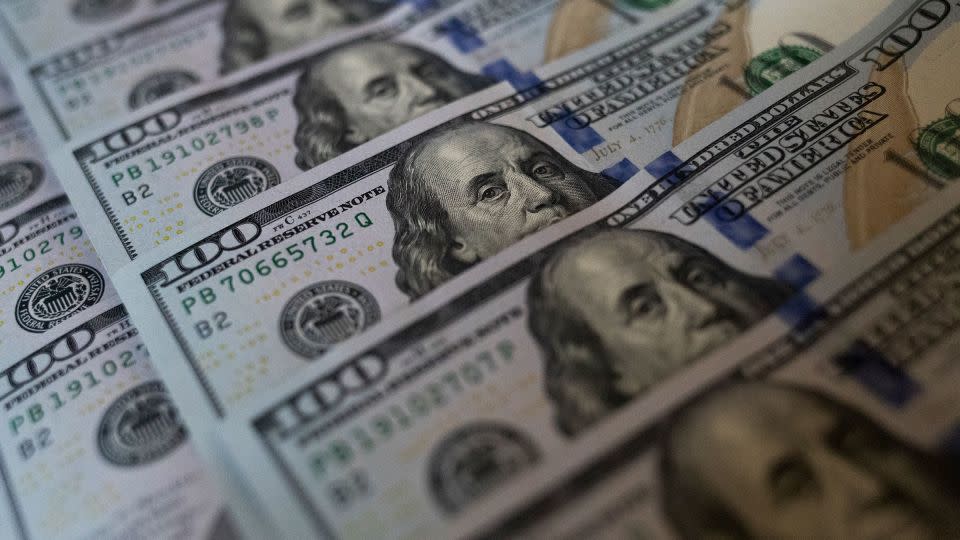Federal budget deficit expected to soar to $2.6 trillion in 2034, CBO says

The federal budget deficit will balloon from $1.6 trillion this fiscal year to $2.6 trillion in fiscal year 2034, according to the latest Congressional Budget Office outlook released Wednesday.
A major reason for the widening gap between revenue and spending: a spike in net interest payments on the federal debt due to higher interest rates. Net interest costs are initially similar to discretionary spending for both defense and nondefense activities, but by 2034, the costs are roughly 1.5 times larger than each, the CBO said.
Also contributing to the rise in deficits are the aging population and the growth in federal health care costs, which will necessitate greater spending on Social Security and Medicare.
Looking at the deficit as a share of the economy, the gaps over the next decade are about 50% larger than their historical average over the past five decades, the CBO noted.
The nation’s debt held by the public is expected to rise to a record 116% of the economy by 2034.
CBO’s deficit projection will likely add pressure to congressional lawmakers who have yet to agree on funding for federal agencies for fiscal year 2024. House GOP lawmakers are pushing to cut spending to narrow the deficit, but divisions on Capitol Hill have forced Congress to pass three short-term funding bills to avoid government shutdowns. The latest deal keeps federal agencies funded into early March.
The nation’s fiscal future also depends heavily on how Congress addresses the individual income tax provisions of the 2017 Tax Cuts and Jobs Act that expire at the end of 2025. The CBO’s projections assume the tax breaks will expire, which would bring in more revenue to the federal government, but lawmakers are expected to extend at least some of them.
Two bright notes in the report: The projected cumulative deficit over the 2024 to 2033 period is now 7%, or $1.4 trillion, smaller than the CBO projected last year because of estimated reductions in discretionary spending due to the debt ceiling deal Congress approved last year and the short-term funding bills. Also, the agency is expecting that economic growth will be stronger over the next decade, partly because more people will be working.
Budget experts called on Congress to take action to address the nation’s worsening fiscal situation.
“It’s hardly a surprise that we’re in this predicament,” Maya MacGuineas, president of the Committee for a Responsible Federal Budget, a watchdog group, said in a statement. “For years, policymakers have relentlessly added to the national credit card – sometimes with good justification, like during COVID, but other times to avoid the hard choices necessary to offset desired spending increases and tax cuts. And all the while, they’ve ignored the rapid automatic growth of our major health and retirement programs.”
The nation’s debt will reach a new record as a share of the economy in four years, she noted.
House Republicans have started the process of setting up a bipartisan fiscal commission, which House Speaker Mike Johnson has pushed.
The effort “provides lawmakers a valuable opportunity to begin a process to develop the comprehensive spending and revenue solutions that are essential for our fiscal and economic future,” Michael Peterson, CEO of the Peter G. Peterson Foundation, said in a statement.
But many Democrats and advocates are wary of the effort, saying that it could lead to cuts to Social Security and Medicare benefits.
This story has been updated with additional information.
For more CNN news and newsletters create an account at CNN.com


